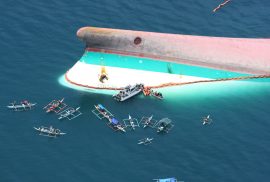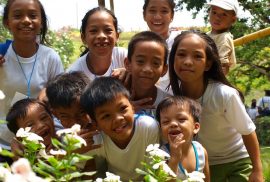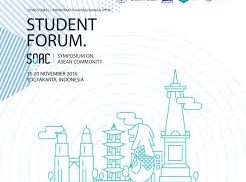The rise of China as a global power has led to the state of panic throughout the world. Despite the insistence by its leaders of China’s ‘peaceful rise,’ fear, anxiety and even hostility toward China has widely been spread. While most analyses are focused more on the implications of the growing power of China on various aspects of power relations, less attention has been given to the way in which China is perceived in other countries. Arguably, the construction of China as a serious threat has played similarly important role in the negative responses of other countries toward the rise of China. The proposed research will fill the gap in the academic discourse on this issue by focusing the analysis on the perception on China and on the framing of its rise. In addition, by focusing on the case of Indonesia, the proposed research will not only help us better understand Indonesian policy toward China but can also be of significance for design more appropriate policy toward China. Departing from constructivist theoretical framework, the research will be conducted through examining documents and speeches, media coverage as well as interviews or focused group discussion.
research
This research by Dr.phil. Hermin Indah Wahyuni, Theresia Octastefani, M.AP., M.Pol.Sc, Muhammad Rum, IMAS, and Prof. David Robie from Program Hibah Kolaboratif Internasional Fakultas ISIPOL UGM in 2018 is intended to analyse the communication and politics of disaster in Indonesia through an examination of the multi-layered responses to two maritime disasters: tidal flooding in Semarang and the threat of tsunamis in Aceh. Although these maritime disasters have different characteristics, both were destructive. While tidal flooding in Semarang has been a slow-onset disaster, tsunamis in Aceh arrive suddenly. Tidal flooding has occurred along the northern coast of Java for decades, but yet to be mitigated; in fact, it has only expanded and caused more damage. Meanwhile, the 2004 tsunami in Aceh was the largest maritime disaster ever experienced in Indonesia, killing hundreds of thousands, causing massive destruction, and creating a number of social problems that remain even today. The main vision of the Joko Widodo (Jokowi) government to reaffirm Indonesia’s status as a strong maritime country cannot be optimally realised, and may even be hindered, if these disasters cannot be addressed.
Border dispute constitutes one of the most challenging issues in the normalisation of the relations between Indonesia and Timor Leste. Two land borders separate the two countries: 150 km in the eastern part and 120 km in the western part (Oecusse, Timor Leste’s enclave inside Indonesian province of Nusa Tenggara Timur). While the eastern part of the border has successfully been negotiated, the western part of the border remains disputed until today. Negotiations of the unsettled borders continue until today without significant progress. Different interpretation exists between Indonesian and Timor Leste negotiators.
Research by Dr. Budi Irawanto, Dr. Novi Kurnia, and Theresia Octastefani, M.AP from the Higher Education Leading Basic Research Grant Program – PDUPT 2018-2020 aims to examine the links between documentary films and social change in Indonesia. Since the process of democratization (Reformation) has begun since 1998, documentary films have experienced decent growth and their production has increasingly spread to a number of regions in Indonesia. In contrast to fiction, documentary films rely on factuality and carry out truth claims on the reality that it raises. More than just representing a variety of social problems, documentary films have the power to open insight, raise awareness and shape certain attitudes. Not surprisingly, documentary films are able to persuade the audience, create a layered meaning, provide a rich experience and create a new awareness of the various issues (issues) of social, political, cultural or ecological that they represent.
Child marriage is defined as marriage performed by children under the age of 18 who are forced, or of their own volition. In this practice, girls are the most disadvantaged because they are related to the high Maternal Mortality Rate (MMR) and the obstruction of their potential to develop themselves. One of the most basic forms of child marriage prevention is the application of understanding reproductive health, especially for adolescents. Unfortunately, this has not been maximized because of religious and socio-cultural challenges. Thus, studies of the need for strengthening reproductive health are urgently needed regarding efforts to save the younger generation and gender equality in accordance with the 2015-2030 Sustainable Development Goals (SDGs).
Media reconstructs and mediates collective memory (Haskin, 2007; Sturken, 2008; Hoskins, 2014). New media allows archiving, distributing, exhibiting, retrieving (Van House & Churchill, 2008), as well as being an arena for memory contestation (Bindas, 2010) through deconstructing and reconstructing related collective memories of 1965/66. The main users of new media such as Youtube, Twitter and Instagram social media in Indonesia are millennial groups that are relatively disconnected from the ideologization of the regime and are relatively free from the New Order’s formal propaganda about 1965.
At present, Semarang City has entered a demographic bonus, namely the phenomenon of the abundance of the population of productive age significantly. In order not to turn into a demographic disaster, the management and utilization of demographic bonuses must be immediately carried out, particularly in the involvement of young people in various activities, including their involvement in responding to tidal flood problems in the Pantura Line in Semarang City, which has not yet been resolved. Their involvement is very important because their position is relatively free from political interests so that they can do various smart and innovative things in presenting and communicating the strategic steps that will be taken to help solve the problem of tidal flooding.
Collaborating with Center for Rural and Regions Studies UGM and Strategic Alliance for Poverty Reduction, this research was conducted to understand the dynamics that occur in the field associated with poverty reduction programs to find the difficulties encountered in various programs implemented. From this research, it is expected to find alternative strategies that can be used by related stakeholders to jointly improve the effectiveness of poverty reduction programs so that the target of reducing social problems due to poverty can be achieved as expected.










